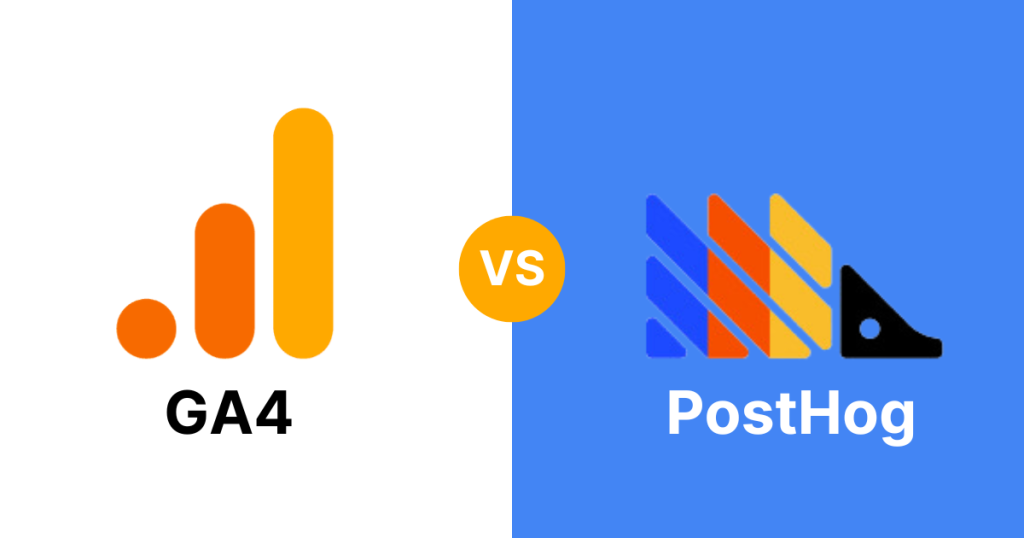In today’s connected world, keeping your personal data private is a big concern. People want to know how their information is collected, stored, and used.
Among the many tools at the intersection of data and insights, Google Analytics 4 (GA4) stands as a powerful instrument for understanding user behavior and optimizing digital experiences. But, using GA4 while respecting data privacy rules can be tricky.
In this blog, we’re going to take a look at GA4 and data privacy. We’ll break down what GA4 is, how it collects data, and why privacy matters. We’ll also explore the challenges that come with using GA4 while respecting people’s privacy.
If you are just starting out with GA4 take a look at Top 10 Mistakes to Avoid in GA4 Setup.
For expert Google Analytics 4 solutions and reliable, real-world results, choose Goodish Agency. Discover our GA4 services and contact us today. Click here.
Table of Contents
The Importance of Data Privacy
Worries about data privacy are on the rise, and there are good reasons why this topic is getting so much attention. Let’s take a closer look at why data privacy matters so much in our online lives.

Personal Information Protection
Think of all the personal information you share online – your name, email, address, and sometimes even more sensitive details. You wouldn’t want this information to fall into the wrong hands or be misused.
Avoiding Cybercrime
Protecting your data keeps you safe from cybercriminals who might want to steal your information or engage in fraudulent activities.
Respecting Your Choices
Data privacy ensures that companies respect your choices. If you’ve decided not to receive marketing emails, your data privacy rights help enforce that decision.
Trust in Online Services
When you trust a website or an app with your data, you expect them to keep it safe and use it responsibly. Data privacy is the foundation of this trust.
Legal Protections
Many countries have strict laws about data privacy, and they’re getting even stricter. Complying with these laws is not just a choice; it’s a legal requirement for businesses.
Ethical Considerations
Beyond legal obligations, there are ethical considerations. Respecting people’s privacy is simply the right thing to do.
Reputation and Trust
Companies that mishandle data often face damage to their reputation. Trust is hard to regain once it’s lost.
Getting to Know Google Analytics 4 (GA4)
Now, let’s get familiar with Google Analytics 4 (GA4) and why it’s a valuable tool for websites.
GA4 serves as a website analytics tool that provides website owners with valuable insights into visitor behavior. It offers a comprehensive view of site activity, including which pages are visited, the duration of visits, and conversion metrics like purchases.
How Does GA4 Help Websites?
Data Insights
GA4 provides in-depth data about your website visitors, akin to having a detailed report on your store’s foot traffic. This information helps identify popular areas and areas that need improvement.
User Behavior Analysis
GA4 tracks user behavior just as a store owner observes customers in a physical store. It reveals what users click on and what they disregard on your website.
Performance Enhancements
With GA4 data, you can optimize your website for a better user experience. Similar to a store owner rearranging shelves for improved sales, you can make adjustments based on user behavior insights.
Marketing Guidance
GA4 assists in evaluating marketing efforts, similar to understanding which store window ads attract the most customers. It highlights which marketing strategies are effective and which ones need adjustment.
Audience Profiling
GA4 provides insights into your website’s audience, including their age, location, interests, and more, helping you understand your customers better.
Data Privacy Challenges with GA4

Consent Management
Websites must obtain user consent for data collection and processing. GA4 users need to implement proper consent mechanisms and ensure compliance with privacy regulations like GDPR and CCPA.
Anonymizing Data
To protect user identities, GA4 allows you to anonymize IP addresses and other personal information. As of the end of May 2022, GA4 no longer stores IP addresses.
Data Retention
GA4 users must define data retention policies, specifying how long data will be stored. This involves striking a balance between analytics needs and user privacy expectations.
Cross-Device Tracking
GA4’s cross-device tracking capabilities raise questions about user identification and tracking consent across multiple devices.
Personalized Marketing
While GA4 can provide insights for personalized marketing, it’s crucial to respect user preferences and privacy when implementing such strategies.
Data Sharing
GA4 users often share data with third-party services. Understanding the data-sharing agreements and ensuring they comply with privacy laws is essential.
Dealing with Data Regulations
In the digital world, privacy regulations like GDPR (General Data Protection Regulation) and CCPA (California Consumer Privacy Act) play an important role in how websites use tools like Google Analytics 4 (GA4). These regulations are like rulebooks, outlining what websites can and can’t do with user data.
Let’s take a look at how GDPR, CCPA, and similar laws impact the use of GA4.
GDPR Essentials
GDPR acts as a strict privacy guardian for European users. It mandates that websites obtain clear consent from users before collecting their data, akin to asking for permission.
CCPA’s California Influence
CCPA primarily affects businesses dealing with California residents. It empowers users to know what data is collected and gives them the option to decline data collection—a way to provide users with more control.
Data Minimization
Both GDPR and CCPA encourage data minimization, encouraging websites to collect only essential data.
User Rights
These laws grant users specific rights over their data, such as requesting access, deletion, and refusing certain data uses.
Impact on GA4
GA4 offers features to help websites comply with these privacy laws, acting as tools to adhere to the privacy rulebook.
However, as of the end of 2022, GA4 is not fully GDPR compliant. It has not reached a consensus with European regulators, especially concerning data storage locations and transfers outside of the EU.
Global Reach
Even if your website isn’t physically located in Europe or California, these laws can still apply if you have visitors from these regions.
Getting User Consent
Respecting user privacy is non-negotiable. This means obtaining proper consent from your website visitors before collecting their data, as mandated by regulations like GDPR and CCPA. Let’s explore why user consent matters and how to go about it correctly.

User Trust
Requesting consent shows your commitment to user privacy, building trust and credibility.
Legal Compliance
Regulations like GDPR and CCPA require user consent for data collection. Non-compliance can lead to severe penalties.
Transparency
Inform users about what data you’re collecting, why you need it, and how you’ll use it. This transparency creates a positive user experience.
Consent Methods
Use clear and easily understandable language in your consent forms. Provide an option to accept or decline data collection, and make it easy for users to change their preferences.
Granular Consent
Allow users to choose which types of data they’re comfortable sharing, giving them more control over their information.
Cookie Consent
Implement a cookie consent banner that informs users about the use of cookies on your site. Users should have the option to accept or decline non-essential cookies.
Document Consent
Keep records of user consent, including when and how it was obtained. This documentation can be crucial in demonstrating compliance.
Regular Updates
Periodically review and update your consent mechanisms to ensure ongoing compliance with evolving regulations.
Protecting User Data
One way GA4 safeguards user privacy is through a feature called IP address anonymization. An IP address is like a digital fingerprint that can be used to identify a user’s location or even their identity. But with anonymization, GA4 takes this data and removes the last part, making it less specific.
Imagine if your home address was like “123 Main Street, Apartment 4A,” and someone just saw it as “123 Main Street.” They can’t pinpoint your exact location anymore. This is what IP address anonymization does for user data.
By doing this, GA4 ensures that the data it collects can’t be used to track individuals personally. It’s like making sure that while you’re watching your store’s customers, you can’t tell who each person is, only what they’re doing.
Data Storage and User Rights
When it comes to data storage and respecting user rights, GA4 follows specific rules. Imagine your website is like a library, and GA4 is the librarian who keeps track of what books are borrowed and by whom.

Limited Storage
GA4 doesn’t hoard data like a collector. It keeps data only for a certain period, just as a library might keep borrowing records for a few years. This ensures that old data, like old library records, doesn’t pile up unnecessarily.
User Rights
GA4 respects the rights of your website’s visitors, similar to how a library respects the privacy of its patrons. Users have the right to know what data is collected about them, just like library patrons have the right to know how their information is used.
Deletion Option
GA4 provides a way to delete data, which is like returning a borrowed book. Users can request their data be deleted, and GA4 will comply, just as a library would remove your borrowing record if you returned all your books.
User Controls
GA4 lets users control certain data, like whether cookies are used or not. It’s similar to allowing library patrons to choose if they want to use a library card or not.
Using GA4 Features Wisely
GA4 offers various features to gather data and gain insights. To make the most of these features while respecting privacy, consider these key points:
Event Tracking
Choose events that truly matter to your website goals. Don’t track everything; focus on what’s relevant, like clicks on important buttons or form submissions.
Filters
Implement filters carefully. Exclude internal traffic and irrelevant sources to maintain clean data. Filters should enhance, not limit, your understanding.
User-ID
Use User-ID features thoughtfully. It can be valuable for tracking user journeys but must comply with privacy regulations.
Custom Dimensions
Use custom dimensions wisely. They help you segment data but should align with your specific analytical needs.
Mobile Optimization
Ensure that GA4 setup works well for both desktop and mobile users to fully understand user behavior.
Testing Before Going Live
Always test your GA4 setup in a controlled environment before making it live. Testing prevents data inaccuracies and errors.
User Permissions
Set up user roles and permissions to control access and maintain data security in GA4.
Alerts and Notifications
Configure alerts for critical metrics or events to stay informed about significant changes in real-time.
Keeping Up with Updates
Regularly check for and implement GA4 updates to access new features and improvements while staying compliant with evolving standards.
Best Practices for Privacy
It’s important to follow the best practices to protect user information and build trust. Let’s explore practical tips for maintaining data privacy while using Google Analytics 4 (GA4).
1. Be clear and open about what data you collect and why. Make this information easily accessible to your users, typically through a privacy policy.
2. Before collecting any personal data, get explicit permission from your users. This can be in the form of opt-in checkboxes or pop-up notifications.
3. Only gather the data that is absolutely necessary for your website’s functionality and your stated purposes. Less data means fewer privacy concerns.
4. Use GA4’s IP anonymization feature to protect user privacy. It makes sure that IP addresses are truncated and not stored in their entirety.
5. Stay up-to-date with data protection laws and adjust your GA4 setup accordingly. Periodically review and update your privacy practices to align with evolving regulations.
6. Ensure that your team is well-informed about data privacy best practices and follows them rigorously.
7. Limit access to GA4 data to only those who need it for their roles. Regularly review and audit who has access to the data.
8. When transferring data from GA4 to other platforms or services, use secure methods to prevent data breaches.
9. Establish clear data retention policies and delete data when it’s no longer needed.
10. Be prepared to respond to user requests regarding their data, including providing them with access or allowing them to delete their information.
Conclusion
Data privacy is a big deal these days. Everyone wants to know that their information is safe and secure. If you own a website, you have to be extra careful about this, especially when you’re using tools like Google Analytics 4 (GA4) to understand what people are doing on your site.
GA4 is super helpful because it tells you a lot about how people use your website. But you have to use it the right way, so you don’t break any rules. There are laws like GDPR in Europe and CCPA in California that tell you what you can and can’t do with people’s data.
Even though GA4 is trying to make sure it follows these laws, it’s not all the way there yet. So, you have to keep an eye on any new changes to make sure you’re doing things right.
Why is this important? Well, following the rules isn’t just about avoiding trouble with the law. It’s also about being a good and trustworthy website. When people know you’re looking after their data, they’re more likely to keep using your site. And that’s good for everyone.
So, whether you’ve been running a website for years or you’re just getting started, you have to take data privacy seriously. Keep learning about the best ways to use GA4 and how to keep user data safe. That way, you can get all the benefits of understanding your users better while making sure you’re respecting their privacy.
We at Goodish agency are experts in digital marketing and we can help you to utilize AI to reduce your costs and boost your performance. Read more about our services.











